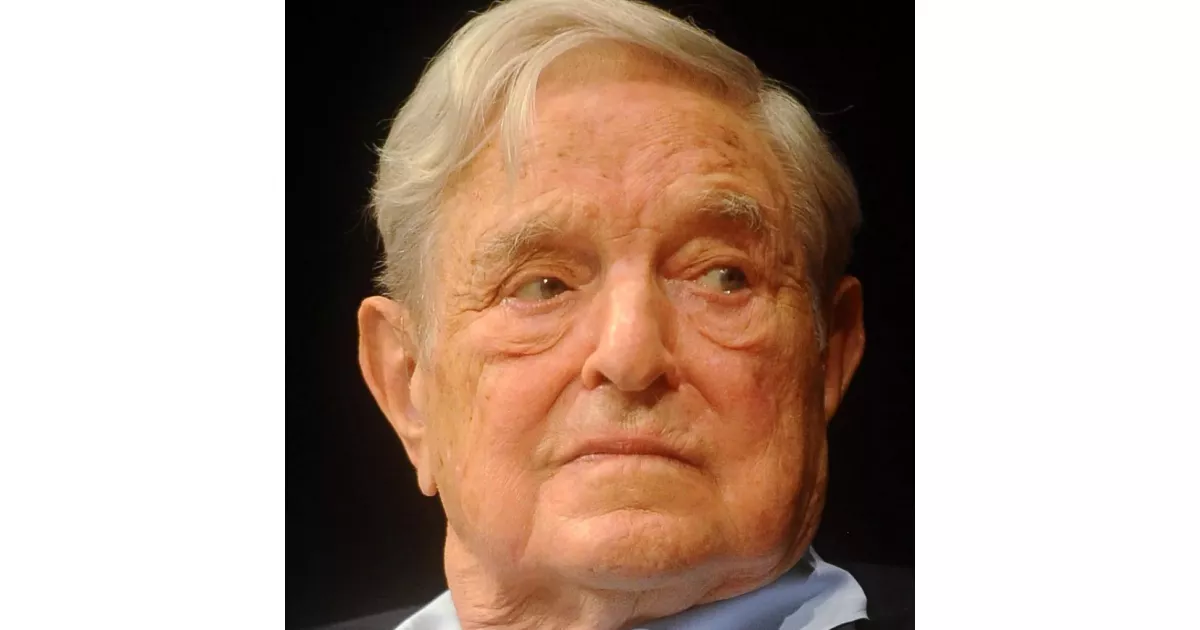Life is full of challenges, and George Soros faced many. Discover key struggles and how they were overcome.
George Soros is a Hungarian-American investor and philanthropist with a net worth of $7.2 billion as of May 2025. He is renowned for his significant philanthropic contributions, having donated over $32 billion to the Open Society Foundations, with $15 billion already distributed. These donations represent 64% of his original fortune. In 2020, Forbes recognized Soros as the "most generous giver" based on the percentage of his net worth donated.
1989: Insider Trading Investigation
In 1989, the Commission des Opérations de Bourse (COB) investigated George Soros's transaction in Société Générale for insider trading. Initial investigations found him innocent.
1997: Closure of Belarus Foundation
In 1997, George Soros closed his foundation in Belarus after it was fined $3 million by the government for "tax and currency violations". Soros called the fines part of a campaign to "destroy independent society".
1997: Shorting of Thai Baht and Malaysian Ringgit
In 1997, Soros Fund Management shorted the Thai baht and the Malaysian ringgit due to an unsustainable discrepancy between the trade and capital accounts. Later, Prime Minister Mahathir of Malaysia accused Soros of causing the financial crisis, which Soros denied, stating they were buyers of the currency during the crisis to profit from earlier speculation.
1999: Paul Krugman's Criticism
In 1999, economist Paul Krugman criticized Soros's effect on financial markets.
2000: Loss of Operating Rights to D.C. United
In 2000, Washington Soccer L.P., the group financially backed by George Soros, lost the operating rights to Major League Soccer club D.C. United.
2003: Remarks on Anti-Semitism at Jewish Funders Network Conference
In 2003, during a conference of the Jewish Funders Network, George Soros suggested that policies of the Bush and Sharon administrations, along with unintended consequences of his own actions, were contributing to a new European anti-Semitism. His comments sparked controversy and criticism, with some accusing him of blaming the victim.
2005: Attempted Purchase of Washington Nationals
In 2005, George Soros was a minority partner in a group that attempted to purchase the Washington Nationals, a Major League baseball team, but faced potential antitrust exemption revocation concerns.
June 14, 2006: French Supreme Court Conviction
On June 14, 2006, the French Supreme Court confirmed George Soros's conviction for insider trading related to a 1988 transaction in Société Générale, reducing the penalty to €940,000.
December 2006: Appeal to the European Court of Human Rights
In December 2006, George Soros appealed to the European Court of Human Rights, arguing that the 14-year delay in bringing the insider trading case to trial precluded a fair hearing.
2006: Criticism in Turkey
In a 2006 interview, Ercis Kurtulus, head of the Social Transparency Movement Association (TSHD) in Turkey, claimed that "Soros carried out his will in Ukraine and Georgia by using these NGOs" and suggested banning NGOs from taking money from foreigners.
2010: Reuters reports and then retracts Soros's alleged connection to Wall Street Protests
In 2010, a Reuters story stated there were 'indirect financial links' between George Soros and Adbusters which acted as a catalyst for Wall Street Protests. Later Reuters retracted it's story saying that Soros's spokesman and Adbusters' co-founder Kalle Lasn both said that Adbusters never received any contributions from Soros.
October 2011: Denial of Funding Wall Street Protests
In October 2011, a Reuters story clarified that George Soros was not a funder of the Wall Street Protests, correcting an earlier report that suggested indirect financial links existed as late as 2010 between Soros and Adbusters, the catalyst for the protests.
October 2011: European Court Rejects Appeal
In October 2011, the European Court of Human Rights rejected George Soros's appeal in a 4–3 decision, stating that he was aware of the risk of breaking insider trading laws.
2012: Labeling as Enemy of the State in Hungary
Since 2012, the Hungarian Fidesz government has labelled George Soros as an enemy of the state.
2015: Disagreement over European Migrant Crisis
In 2015, The Hungarian government disagreed with George Soros's involvement in the 2015 European migrant crisis. Soros called the government "a mafia state".
2015: Conspiracy Theories and Demonization
In 2015, due to his Jewish identity, wealth, and philanthropy, George Soros was the target of conspiracy theories, particularly related to the European migrant crisis. The Hungarian government launched a poster campaign demonizing him, with some critics viewing him as leading an international cabal.
January 2016: Prediction of Financial Crisis at Sri Lanka Economic Forum
In January 2016, at an economic forum in Sri Lanka, George Soros predicted a financial crisis similar to the 2008 financial crisis, based on the condition of the global currency, stock, and commodity markets, as well as the weakening Chinese yuan.
January 2017: Launch of "Stop Operation Soros" in Macedonia
In January 2017, the "Stop Operation Soros" (SOS) initiative was launched in Macedonia, aiming to present information about how George Soros operates worldwide and calling for the "de-Soros-ization" of Macedonia.
March 2017: Inquiry into Grants to Soros-Funded Groups
In March 2017, six US senators requested that the Secretary of State investigate grants given by the State Department and USAID to groups funded by George Soros. Judicial Watch also filed a lawsuit regarding $5 million transferred to Soros's Open Society branch in Macedonia.
July 2017: Hungarian Billboard Campaign Vilifying Soros
In July 2017, a billboard campaign in Hungary, backed by Prime Minister Viktor Orbán, vilified George Soros as an enemy of the state with the slogan "Let's not allow Soros to have the last laugh". The campaign was widely criticized as anti-Semitic, evoking historical parallels to Nazi propaganda.
2017: $10-Million Lawsuit Filed by Beny Steinmetz
In 2017, Beny Steinmetz filed a $10 million lawsuit against George Soros, alleging that Soros influenced the government of Guinea to freeze Steinmetz's company BSG Resources out of iron ore mining contracts, citing animus toward Israel. Soros dismissed the suit as frivolous and a PR stunt.
May 16, 2018: Open Society Foundations Move Office
On May 16, 2018, George Soros's Open Society Foundations announced they would move its office from Budapest to Berlin, citing an "increasingly repressive" environment in Hungary.
October 2018: United States Mail Bombing Attempts
In October 2018, George Soros's home was targeted with a pipe bomb as part of the United States mail bombing attempts. Similar bombs were mailed to other prominent figures like Hillary Clinton and Barack Obama.
October 22, 2018: Pipe Bomb Placed at Soros's Home
On October 22, 2018, a pipe bomb was discovered in the mailbox at George Soros's home in Katonah, New York, as part of a series of mail bombing attempts targeting prominent Democrats and liberals. The bomb was discovered by a caretaker and later exploded by the FBI as part of their investigation.
October 26, 2018: Arrest of Cesar Sayoc Jr.
On October 26, 2018, Cesar Sayoc Jr. was arrested in Aventura, Florida, as a suspect in the mailing of pipe bombs, including the one sent to George Soros's home.
2018: "Stop Soros package"
As the 2018 election period started, the Hungarian government introduced public posters with a photo of George Soros to create hostility towards him, and prepared the "Stop Soros package" against NGOs doing volunteer work related to the refugee crisis.
August 2019: Sentencing of Cesar Sayoc Jr.
In August 2019, Cesar Sayoc Jr. was sentenced to 20 years in prison for mailing 16 pipe bombs to 13 victims, including George Soros. None of the devices detonated.
December 2023: Swatting Incident
In December 2023, George Soros was swatted during a period of similar harassment targeting American political figures.
December 2023: Accusations of Supporting Anti-Israel Organizations
In December 2023, Israel's ambassador to the United Nations, Gilad Erdan, accused George Soros of supporting pro-Palestinian organizations that seek the destruction of the State of Israel as a Jewish state. Soros's son, Alexander, dismissed these accusations as dishonest, right-wing attacks.
Mentioned in this timeline
Huawei is a Chinese multinational technology corporation headquartered in Shenzhen...

Donald John Trump is an American politician media personality and...
Ukraine is a large country in Eastern Europe second in...

Barack Obama the th U S President - was the...

Hillary Diane Rodham Clinton is an American politician lawyer and...

George W Bush the rd U S President - is...
Trending

6 months ago Celebrating Chris Hemsworth's Birthday: Iconic Roles from Thor to Extraction and Beyond

9 months ago The Weeknd's Late Night Interview Debut with Fallon, Bart Simpson's Fallon Ignorance.

3 months ago Ghislaine Maxwell Seeks Trump Commutation; Prison Perks Investigated; Giuffre Family Reacts

John Collins born is a Scottish former professional football player and current manager A midfielder by trade Collins notably played...

Noam Chomsky is a highly influential American linguist philosopher cognitive scientist and political activist He revolutionized linguistics with his theory...

Rob Schneider is an American actor and comedian best known for his time as a cast member on Saturday Night...
Popular

Kid Rock born Robert James Ritchie is an American musician...

Melania Trump a Slovenian-American former model has served as First...

XXXTentacion born Jahseh Dwayne Ricardo Onfroy was a controversial yet...

Thomas Douglas Homan is an American law enforcement officer who...

Instagram is a photo and video-sharing social networking service owned...
The Winter Olympic Games a major international multi-sport event held...
